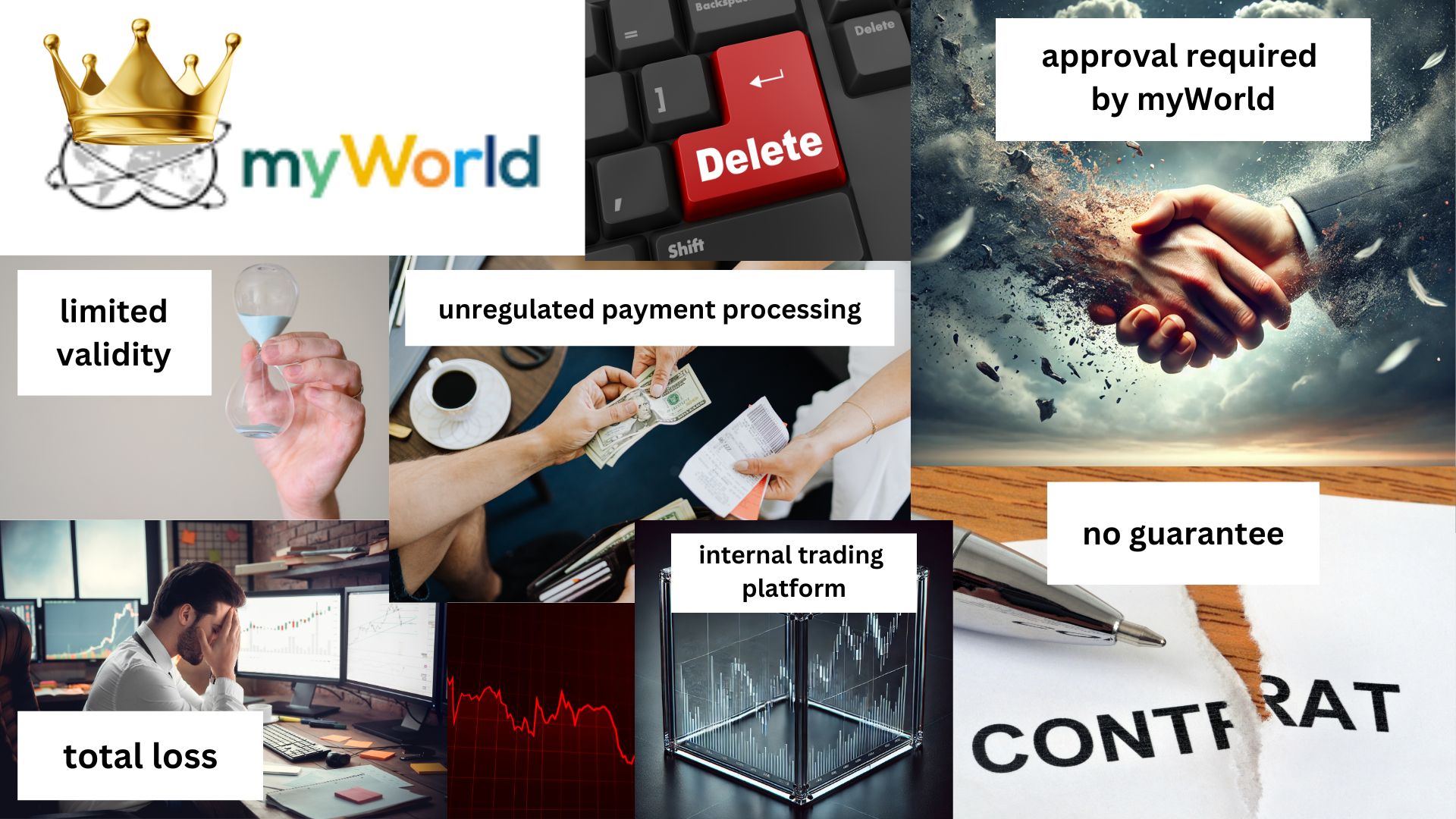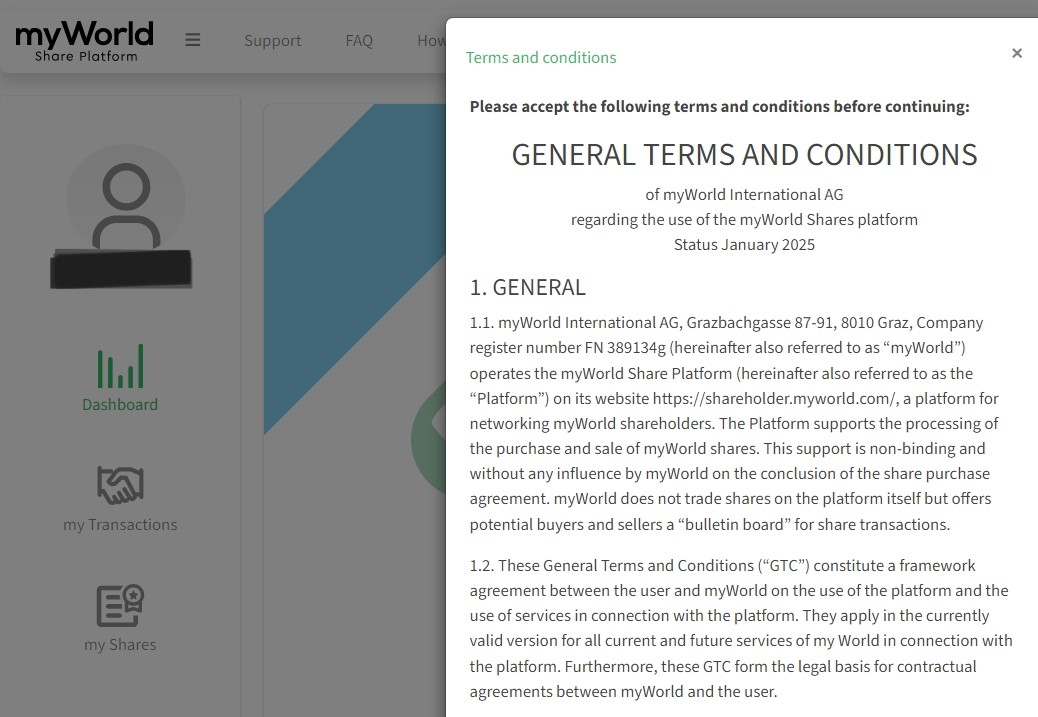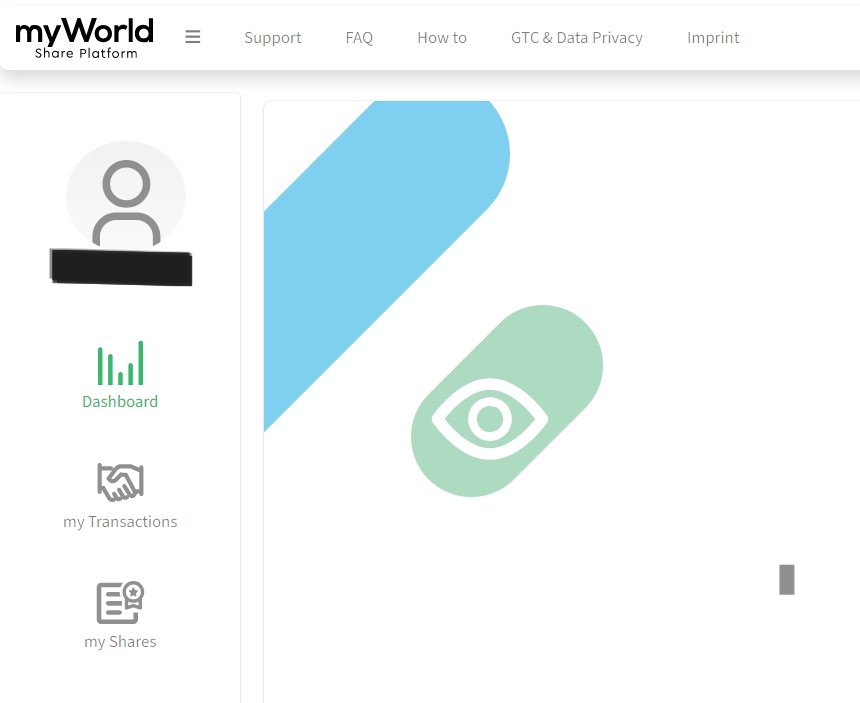Questionable terms and conditions and restrictions: the risks of the myWorld Share platform
The trading platform for the myWorld Share is being touted as an innovative solution for share trading. However, a thorough analysis of the terms and conditions reveals significant restrictions and risks to which potential investors are exposed. While the advantages for shareholders are negligible, the regulations appear to be clearly designed in favour of the company. Particularly critical: Participation requires the acceptance of specific terms and conditions, the content of which we have examined more closely.
Non-binding offers and limited flexibility
A key weakness is already apparent in the offer of purchase or sale transactions: According to the terms (Articles 3.1 and 3.2), all offers are non-binding until signed by both parties and approved by myWorld. This not only creates uncertainty for investors, but could also lead to unnecessary delays.
Furthermore, all transactions are limited by myWorld’s consent (Articles 4.9 and 4.14). The company can reject offers for ‘good cause’ (Article 5.1) without defining clear criteria. These regulations create a dependency for shareholders and endanger the free tradability of the share.
Market restrictions and a lack of security
Another key point of criticism is the requirement to process transactions exclusively via the myWorld platform (Article 4.8). The use of other trading centres is excluded. This restricts the market and reduces flexibility, which makes the shares almost worthless for investors who rely on a wide disposability.
To make matters worse, the platform does not offer any payment processing support (Article 6.1). Buyers and sellers have to process payments independently – an open invitation to fraud and payment problems.
Further obligations and hurdles for shareholders
In addition to the structural limitations of the platform, shareholders are also burdened by operational obligations. For example, sellers are responsible for reporting payment receipts and updating their offers (Articles 4.12 and 4.17). Errors or delays in these tasks could significantly disrupt the sales process.
In addition, offers are only valid for 30 days (Articles 1.2 and 4.3), which makes trading difficult when the market moves quickly. Combined with the fact that a subsequent sale of the shares is not guaranteed (Article 6.1), the result is a fragile system that leaves little leeway for investors.
Arbitrariness and risk of total loss
Particularly critical is the arbitrary right of myWorld to delete offers if they are classified as dubious or violate the terms and conditions (Article 2.3). The unclear criteria for ‘dubious’ create uncertainty and can potentially be misused to block unwanted transactions.
Finally, the company itself points out that there is a risk of total loss (Article 6.1). This means that investors could potentially lose all of their capital without any protection against such scenarios.
Conclusion: risks for shareholders outweigh the benefits
An analysis of the terms and conditions of the myWorld Share shows that the platform harbours numerous risks, while the potential benefits for shareholders are hardly recognisable. From the arbitrary rejection of transactions to the lack of support for payment processing to market restrictions and total loss risks, the trading platform appears to be anything but investor-friendly.
Those who use the platform should carefully consider these aspects and be aware of the significant restrictions before making a decision. Without comprehensive reforms to the terms and conditions, the trading platform remains a risky playing field where the company controls the rules.
Sources: myWorld, Lyconet
Note: As always, those affected are welcome to comment on this, or if someone has more or different information, they are welcome to share it with us. We are not interested in making false claims and our primary goal remains the provision of complete documentation.





Leave a Reply
Want to join the discussion?Feel free to contribute!